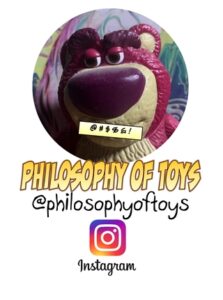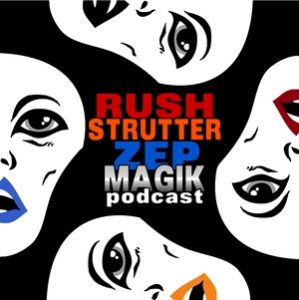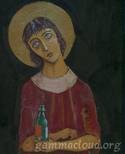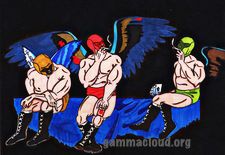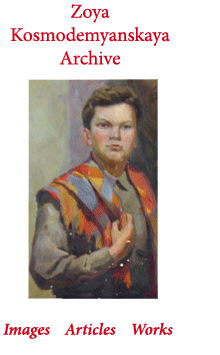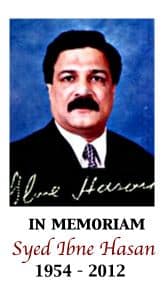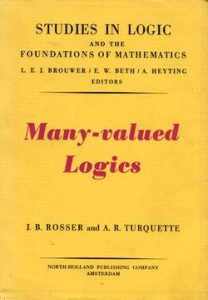 Some years ago, I purchased a softcover edition of Rosser and Turquette’s Many-valued Logics (Amsterdam: North-Holland, 1952) from a second-hand bookseller. I was not necessarily interested in the study of logic or mathematics, as a grasp of these disciplines had proven elusive to me throughout my experiences in college and graduate school. Rather, I was compelled to purchase the text out of an ongoing interest in rare and unusual books. I’d found the aforementioned book in a collection of similar small volumes that included a vintage copy of Kurt Gödel’s The Consistency of the Continuum Hypothesis (Princeton University Press, 1940) and I was as a longtime admirer of Douglas Hofstadter, I was somewhat acquainted with Gödel’s work. So, I purchased that book and added the Rosser and Turquette to my collection for good measure.
Some years ago, I purchased a softcover edition of Rosser and Turquette’s Many-valued Logics (Amsterdam: North-Holland, 1952) from a second-hand bookseller. I was not necessarily interested in the study of logic or mathematics, as a grasp of these disciplines had proven elusive to me throughout my experiences in college and graduate school. Rather, I was compelled to purchase the text out of an ongoing interest in rare and unusual books. I’d found the aforementioned book in a collection of similar small volumes that included a vintage copy of Kurt Gödel’s The Consistency of the Continuum Hypothesis (Princeton University Press, 1940) and I was as a longtime admirer of Douglas Hofstadter, I was somewhat acquainted with Gödel’s work. So, I purchased that book and added the Rosser and Turquette to my collection for good measure.
Upon opening my newly acquired copy of Many-valued Logics, I found a handwritten letter tucked behind the front flap of the book’s dust cover. Inspecting the document further, I found that it was a letter dated August 22, 1960 from noted mathematician Alonzo Church (1903-1995) to a doctoral student named Richard L. Pratt. Judging from the context of Church’s reply, Pratt was a doctoral student of J.B. Rosser, a co-author of Many-valued Logics.
In January 2013, I was contacted by Pratt’s son Rob who came across this page while reading about his father on the web. He indicated that his father had passed away in 2005 and shared a bit more about the story behind the letter to Dr. Church:
“My father completed a master’s degree (A.M. degree at Princeton) and all Ph.D. coursework by 1960, but he ran out of funding before finishing the dissertation…I believe that when he received the letter he had already moved to Dayton to complete his ROTC obligation by teaching at the Air Force Institute of Technology at Wright-Patterson Air Force Base.”
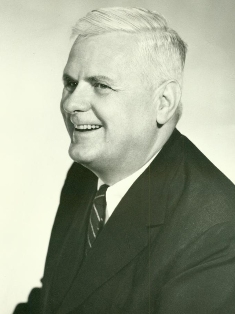
Dr. Alonzo Church
Church is known best for his work in the field of mathematical and symbolic logic and some of his most important work is closely related to Gödel’s incompleteness proof. As such, it’s not surprising that students sought his opinion and guidance concerning research and study.
The letter was written on a half-page of letterhead paper from the Department of Philosophy at the University of California at Berkeley. In the letter, Church encourages Pratt to proceed with work on a doctoral dissertation regarding arithmetic in many-valued logic and he encourages the student to obtain a copy of Many-valued Logics by Rosser and Turquette. Incidentally, my copy of the aforementioned book also has Pratt’s name written in the upper right corner of the first page of the book, indicating that Pratt did indeed follow Church’s advice with request to obtaining the text.
I contacted Princeton University Library, which maintains the official archive of Alonzo Church’s writings and advised them that I’d found the above-described letter. They are interested in adding this document to their archive and I may indeed give it to them at some point for posterity. But at this point, I wanted to share it with as many people as possible via the Internet in the event that it might provide valuable information or insight to interested scholars and academicians.
– Mike Bessler, August 2012 (expanded December 2013)
Read the transcription below or download as a PDF.
UNIVERSITY OF CALIFORNIA
DEPARTMENT OF PHILOSOPHY
BERKELY 4, CALIFORNIA
August 22, 1960
Dear Mr. Pratt,
I think the topic suggested to you by Prof. Rosser – arithmetic in many-valued logic – ought to lead to a satisfying dissertation. I’d anticipate routine hard work rather than results of great depth or outstanding general importance. However, this is only a guess on my part – there’s always the chance of surprises.
My only suggestions are the obvious ones.
To a many-valued functional calculus of first order add the axioms (A0) of my book[1], or analogues of them. Then seek to provide the standard theorems or analogues of them (for guidance, compare my Exercises 55). If there is insurmountable difficulty in getting essential theorems consider (1) whether there are weaker or modified forms of the same theorems which can be proved and which might be sufficient, (2) whether additional axioms should be assumed and if so whether their independence can be proved. (Again see Exercises 55 for examples of proofs of independence of axioms.)
Once having a suitable object language – a formulation of many-valued arithmetic (let’s call it) which is reasonable satisfactory in regard to theorems that can be proved – turn to the question of metatheorems that should be proved. Look in particular for translation theorems analogous to known translation theorems that relate intuitionistic arithmetic to classical arithmetic. (Example: Kolmogorov’s metatheorem. Every theorem of classical arithmetic, t.t., of the system called A0 in my book, becomes a theorem of intuitionistic arithmetic upon prefixing a double negation sign to every well-formed part.)
After September 15 my address will be: Department of Philosophy, University of California at Los Angeles 24, Calif.
Sincerely yours,
Alonzo Church
[1] Church, Alonzo. Introduction to Mathematical Logic. Princeton, NJ: Princeton UP, 1956. 333-42.


